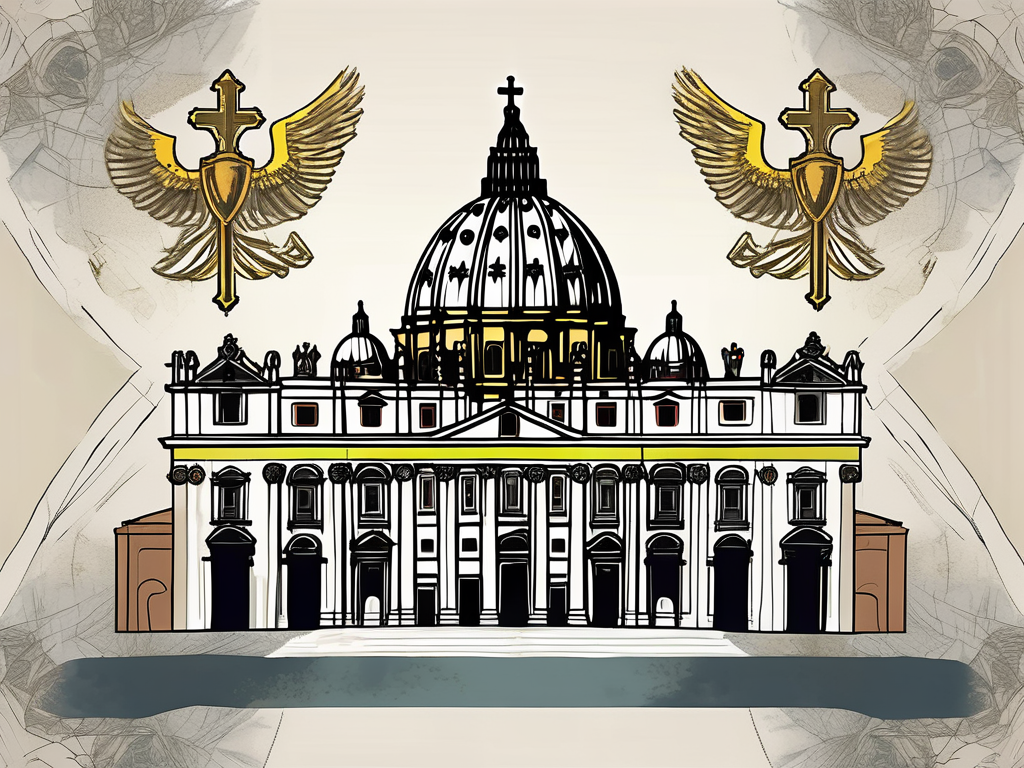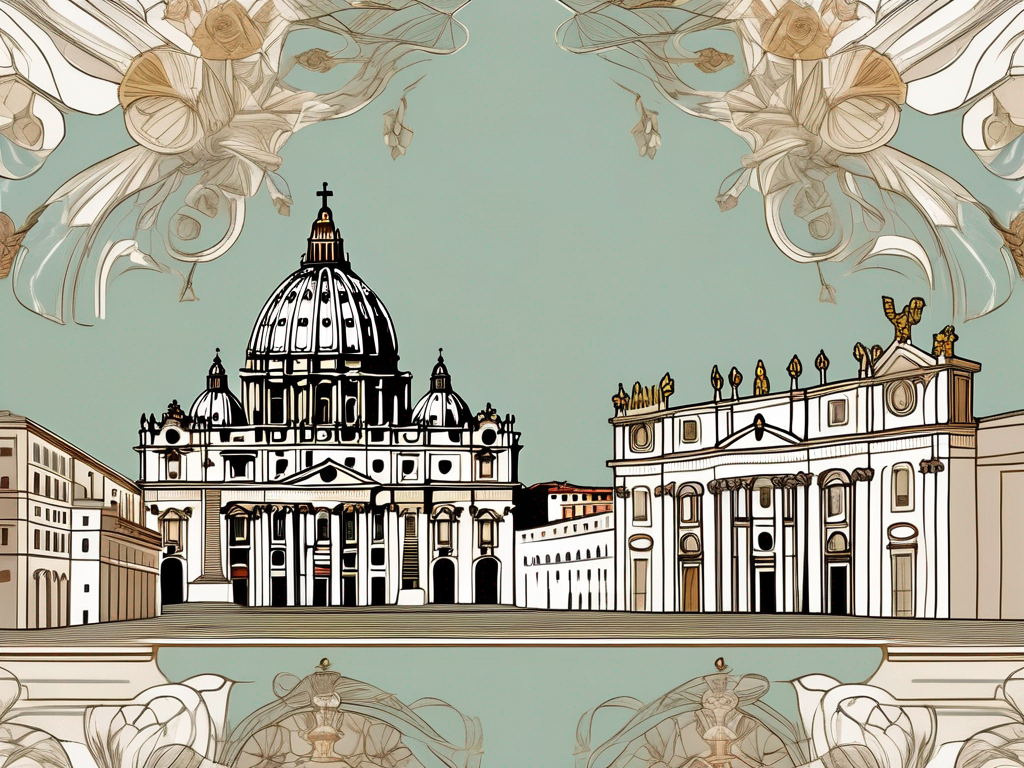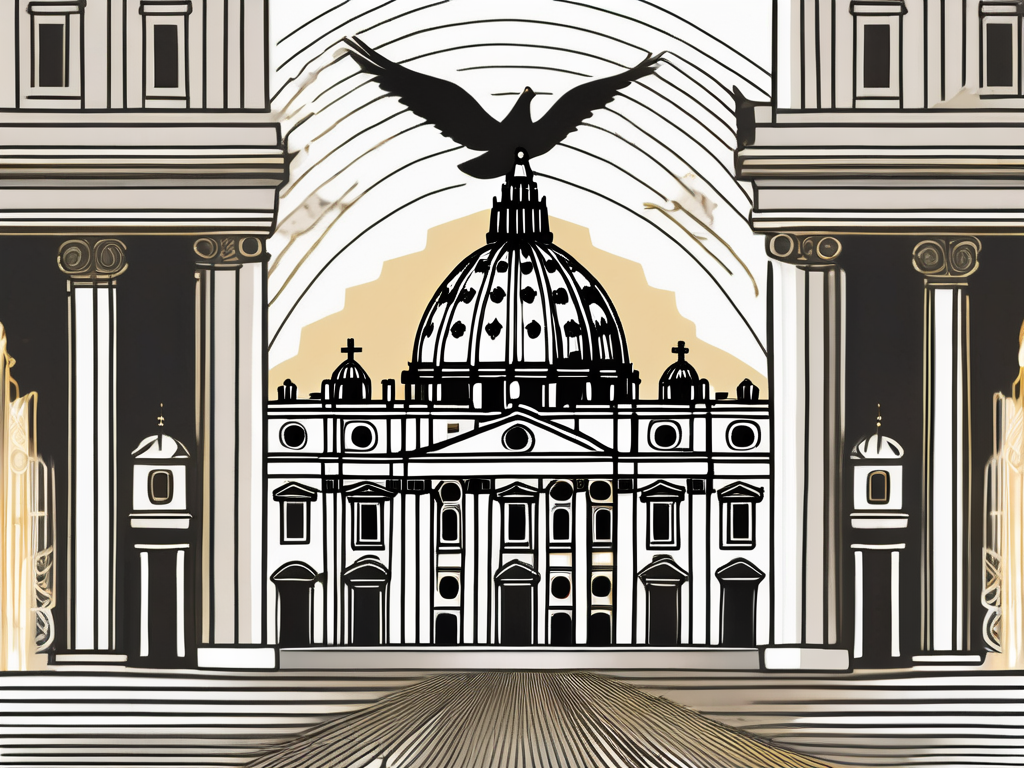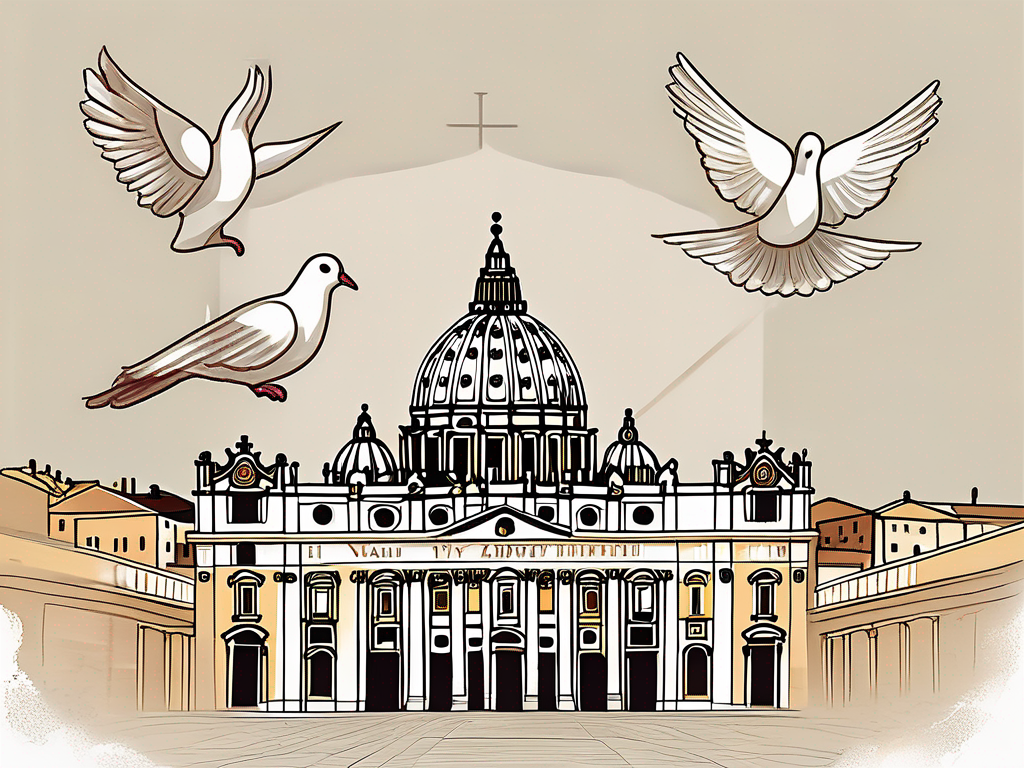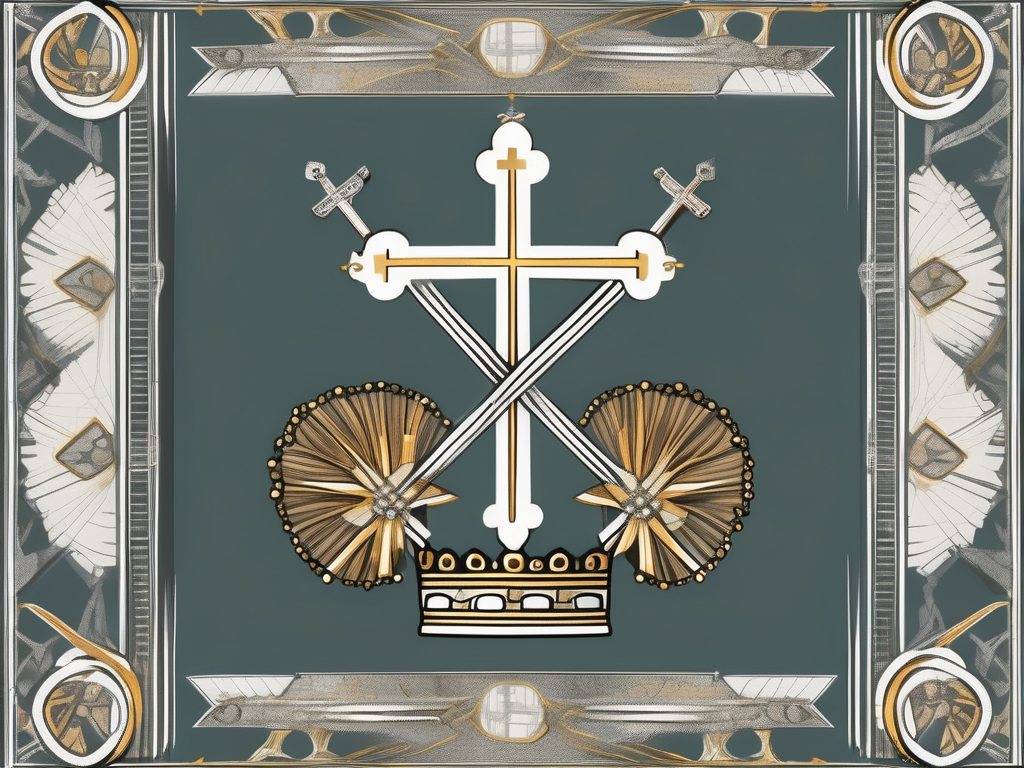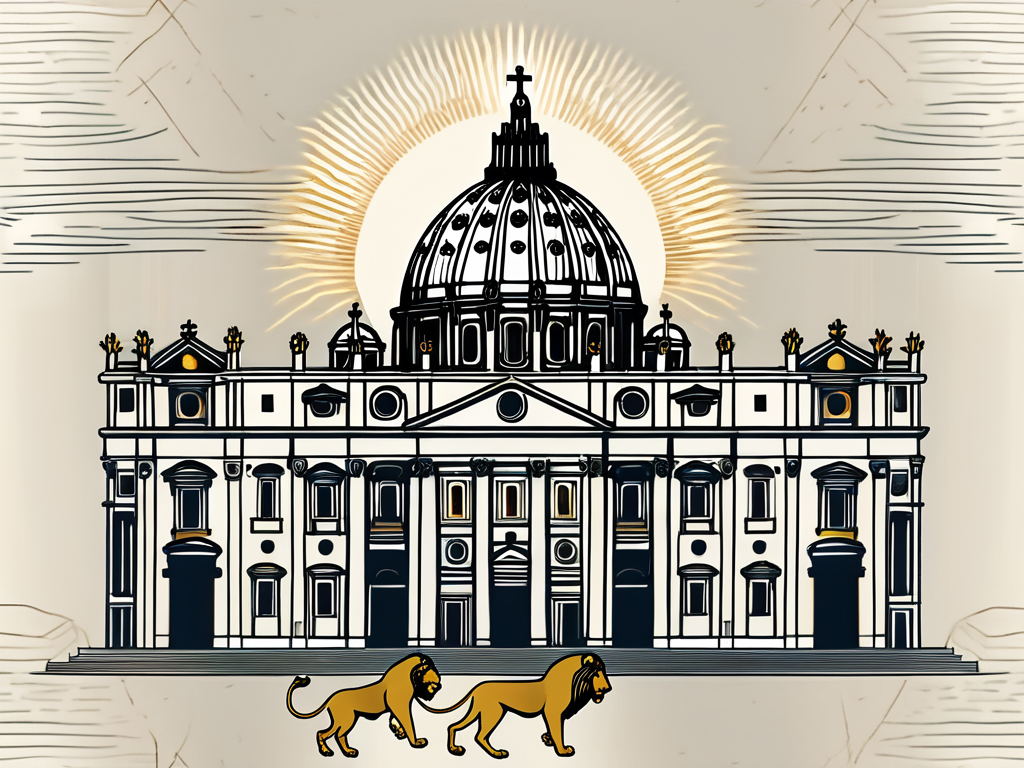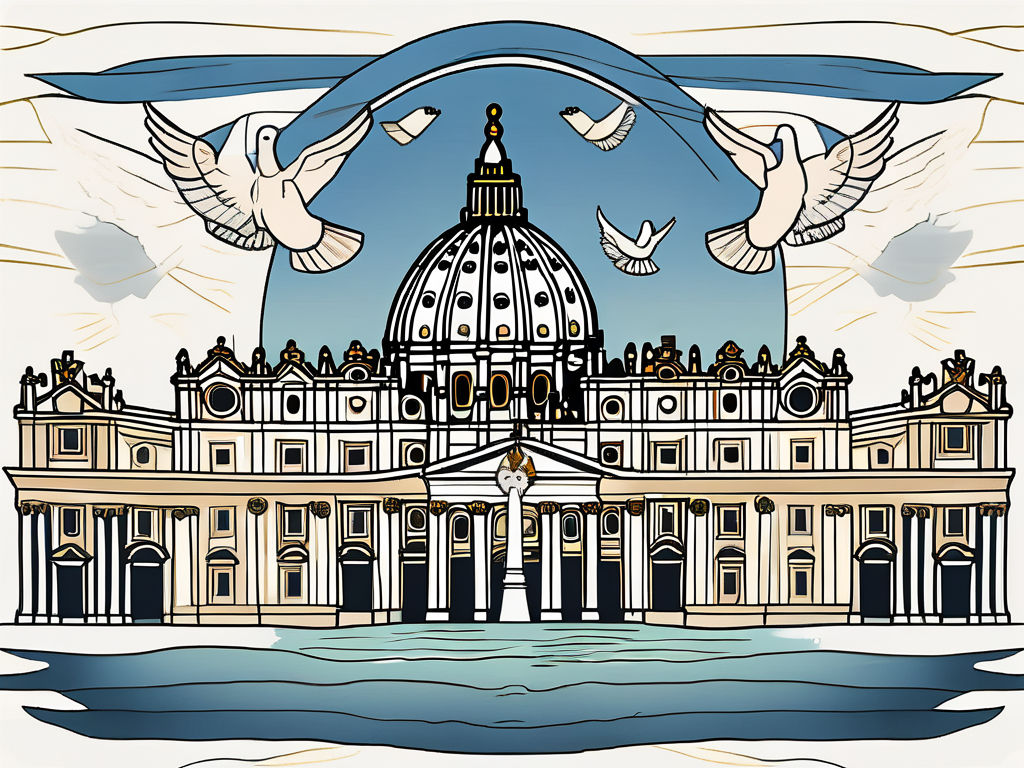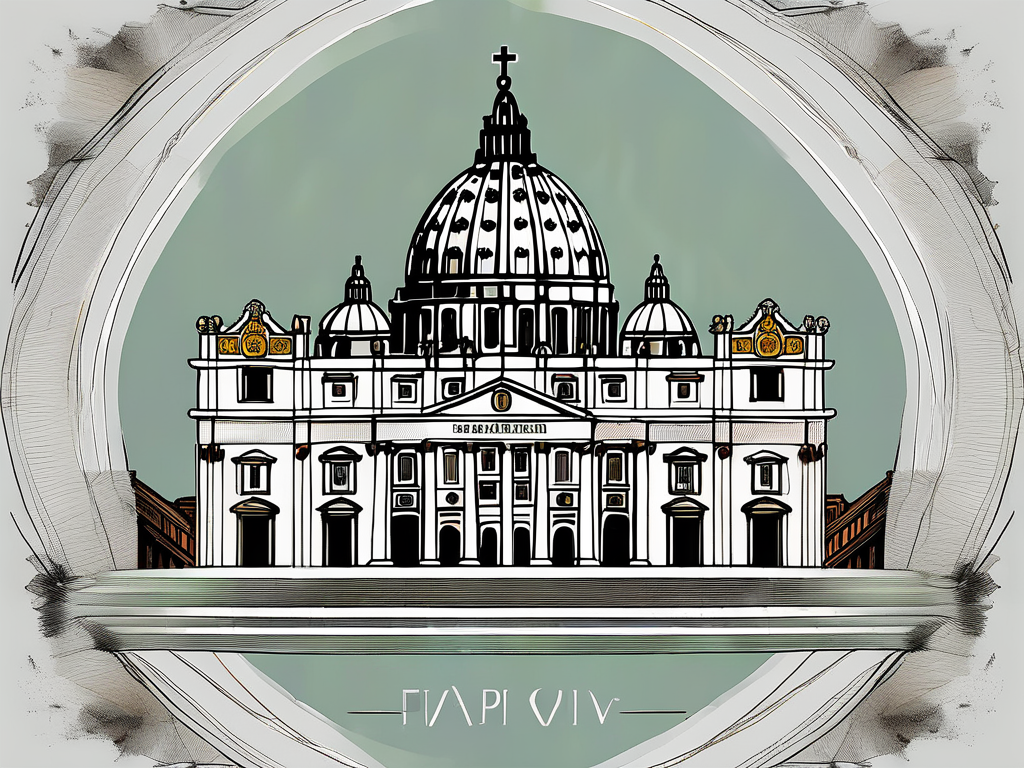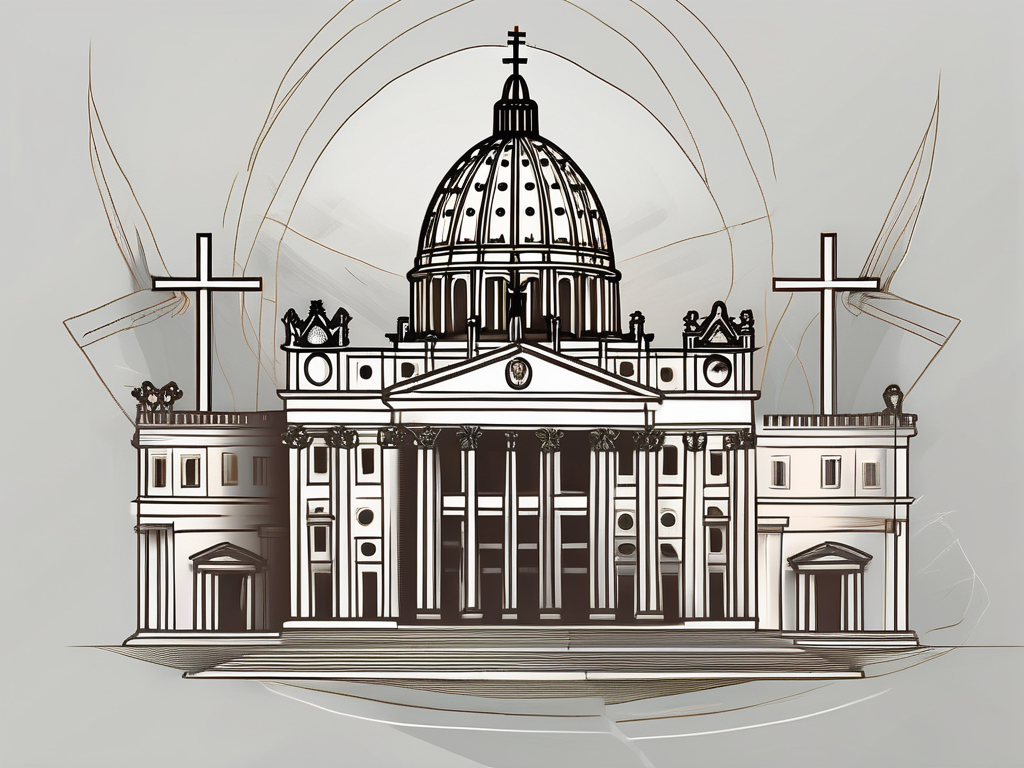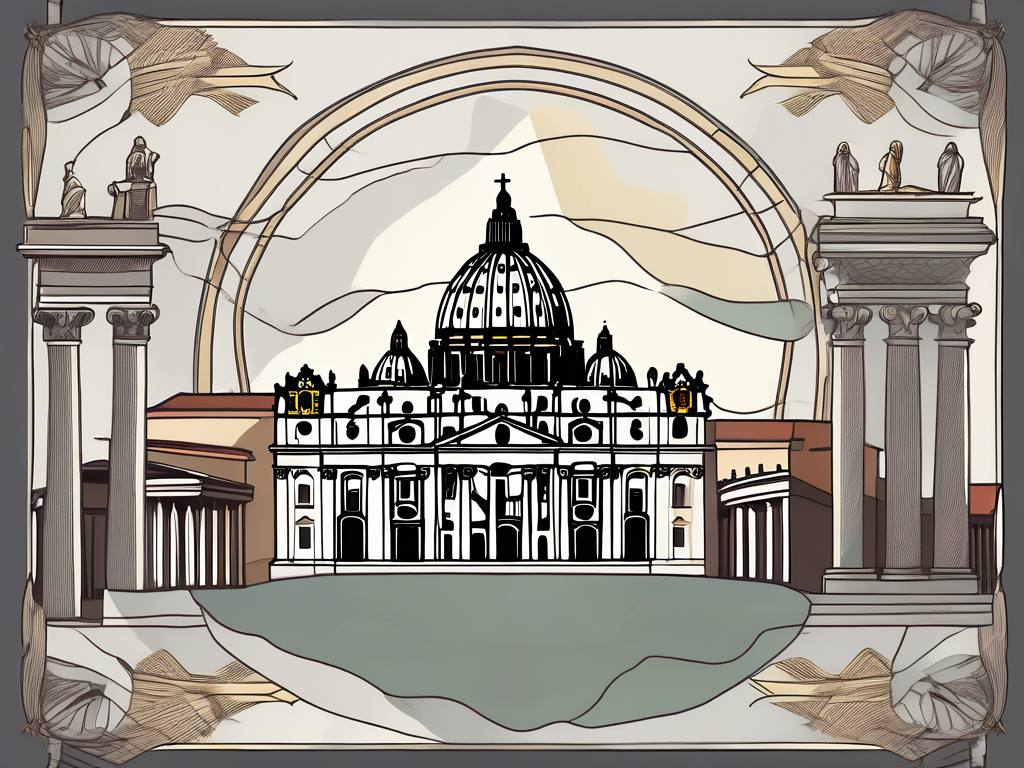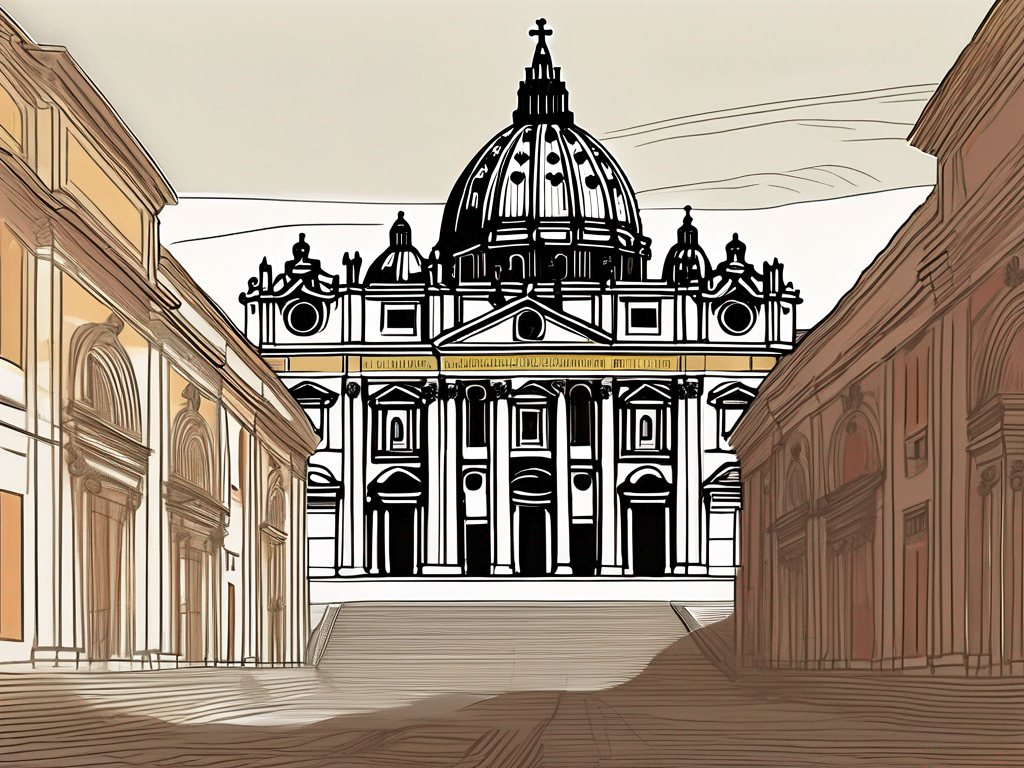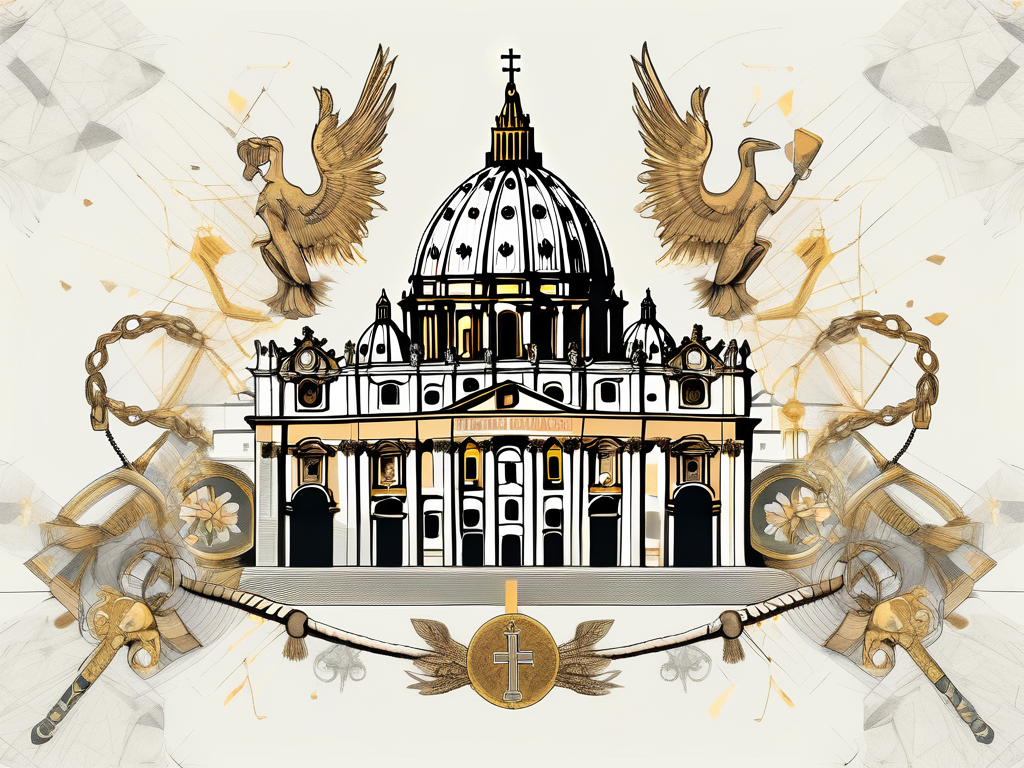In the rich tapestry of history, few individuals have left an indelible mark quite like Pope Leo XI. Born as Alessandro Ottaviano de’ Medici, his journey from humble beginnings to the papal throne is a testament to perseverance and faith. Let us delve into the remarkable life of one of the most intriguing figures in the Catholic Church.
Early Life and Education of Alessandro Ottaviano de’ Medici
Hailing from a renowned family, Alessandro Ottaviano de’ Medici came into this world with a unique heritage. Born on June 2, 1535, in the illustrious city of Florence, he belonged to the prestigious Medici dynasty. The Medici family had significant influence not only in Florence but throughout Europe.
Tracing his ancestry back to the influential Giovanni di Bicci de’ Medici, Alessandro’s family tree was laden with political and cultural prominence. The Medici family played a pivotal role in shaping the renaissance era through their patronage of various artists and thinkers.
Alessandro’s birth brought joy and hope to the Medici clan. His parents, Ottaviano de’ Medici and Francesca Salviati, were esteemed members of Florentine society. They saw in their newborn son the potential for greatness, a legacy they hoped he would honor.
Growing up in a nurturing environment, Alessandro was surrounded by opulence and artistry. The Medici household was a hub of creativity, fostering his intellectual and spiritual curiosity from an early age. This provided a solid foundation for the future pope, setting him on a path of knowledge and enlightenment.
As a child, Alessandro was exposed to the finest works of art and literature. His parents, recognizing his keen interest in the humanities, ensured that he received a comprehensive education. Guided by his parents and tutors, he delved into the realms of literature, history, and philosophy, developing a well-rounded understanding of the world.
However, Alessandro’s education was not confined to the confines of a traditional classroom. In addition to his academic studies, he was encouraged to explore the world around him, to engage in conversations with scholars and intellectuals, and to question the status quo.
As his intellectual prowess blossomed, Alessandro’s interest in religious matters deepened. He engaged in regular theological discussions with esteemed scholars, challenging his beliefs and expanding his understanding of the divine. This early religious involvement cultivated a profound spiritual calling within him, eventually propelling him towards a life dedicated to serving God.
It was during this time that Alessandro began to contemplate the role of faith in society and the potential impact of religious leaders on the world. He became increasingly aware of the power and influence wielded by the Catholic Church, and he felt a growing desire to contribute to its mission.
As Alessandro entered his teenage years, his commitment to his religious beliefs became more pronounced. He sought guidance from mentors and spiritual leaders, immersing himself in the teachings of the Church and embracing a life of devotion.
Throughout his formative years, Alessandro’s passion for knowledge and his unwavering faith intertwined, shaping his character and guiding his aspirations. The Medici family’s legacy of patronage and intellectual curiosity had left an indelible mark on him, fueling his desire to make a meaningful contribution to the world.
Little did Alessandro know that his journey was just beginning. The foundations laid during his early life and education would serve as a springboard for his future endeavors, propelling him towards a path of leadership and influence that would leave an indelible mark on history.
Ascension to the Papacy
Alessandro Ottaviano de’ Medici’s journey to the papal throne was not without its share of challenges and trials. Nevertheless, his determination, coupled with divine intervention, guided him through the labyrinthine corridors of power towards the pinnacle of Catholic authority.
Journey to the Papal Throne
The untimely demise of Pope Gregory XIV in 1591 marked a turning point in Alessandro’s life. The College of Cardinals convened to select the next pontiff, and amidst the whispers and deliberations, the eyes of destiny fell upon him. On April 1, 1605, Alessandro Ottaviano de’ Medici ascended to the papal throne, taking the name Pope Leo XI.
But the path to the papacy was not a straightforward one. Alessandro faced numerous obstacles and challenges that tested his faith and resolve. From political maneuverings to rival factions within the College of Cardinals, he navigated a treacherous landscape to claim his rightful place as the leader of the Catholic Church.
As the spiritual leader of the Catholic Church, Pope Leo XI faced numerous challenges from both within and outside its walls. However, his indomitable spirit and unwavering commitment to his faith enabled him to overcome the hurdles that lay in his path.
Challenges and Triumphs of His Papacy
Pope Leo XI’s papacy was marred by the turbulent political climate of his time. The Italian peninsula was embroiled in power struggles and territorial disputes, making his task of leading the Catholic Church a daunting one.
Undeterred by these challenges, Pope Leo XI exercised his diplomatic prowess to restore stability and forge alliances. He skillfully navigated the treacherous waters of political intrigue, working tirelessly to bring about peace and unity among the warring factions.
One of his greatest triumphs was the signing of the Treaty of Rome in 1607, which brought an end to a long-standing conflict between two powerful Italian families. This landmark agreement not only secured peace in the region but also strengthened the position of the Catholic Church as a mediator and peacemaker.
Furthermore, Pope Leo XI was a staunch supporter of the arts and sciences. Under his patronage, the Vatican became a hub of intellectual and cultural activity. He commissioned renowned artists and architects to beautify the city, leaving a lasting legacy of magnificent artworks and architectural marvels.
Throughout his papacy, Pope Leo XI tirelessly advocated for social justice and the welfare of the less fortunate. He established charitable institutions and initiated reforms to alleviate poverty and improve the living conditions of the marginalized. His compassion and empathy endeared him to the masses, making him a beloved figure not only within the Catholic Church but also among the wider population.
In conclusion, Pope Leo XI’s ascension to the papal throne was a testament to his unwavering faith, determination, and diplomatic skills. Despite the challenges and trials he faced, he emerged as a transformative leader who left an indelible mark on the Catholic Church and the world at large.
Significant Contributions of Pope Leo XI
Beyond his role as a peacemaker, Pope Leo XI made significant contributions to the Catholic Church, leaving an everlasting impact on its doctrine and organization.
Diplomatic Efforts and Achievements
Pope Leo XI’s diplomatic acumen proved indispensable. His negotiations with various European powers helped to maintain peace and ensure the security of the Holy See. His efforts were pivotal in promoting religious tolerance and fostering dialogue between different faiths.
Influence on the Catholic Church
Pope Leo XI’s tenure as the head of the Catholic Church left an indelible mark on its evolution. He strove to strengthen the institution’s moral compass, emphasizing the importance of justice, compassion, and adherence to Christian virtues.
Moreover, Pope Leo XI’s unwavering commitment to scholarship and the arts saw him patronize artists and scholars, allowing them to flourish under his benevolent guidance. His patronage encouraged the rediscovery of ancient texts and the preservation of cultural treasures.
The Shortest Reign in Papal History
Tragically, Pope Leo XI’s pontificate came to an untimely end, making it the shortest in papal history. His fleeting time as the spiritual leader of the Catholic Church has left a lasting impression on the memory of faithful and historians alike.
Health Issues and Death
Throughout his life, Pope Leo XI battled various health issues. Sadly, these afflictions worsened during his papacy, severely impacting his ability to fulfill his duties. On April 27, 1605, a mere twenty-seven days after his ascension to the papal throne, Leo XI succumbed to illness, leaving the Catholic world in mourning.
Impact of His Brief Papacy
Although Pope Leo XI’s reign was short-lived, it brought about significant change. The brevity of his time as pope served as a poignant reminder of the fleeting nature of human existence and the importance of making every moment count.
His papacy also paved the way for future pontiffs, inspiring them to rise above adversity and continue the noble mission of the Holy See. The lessons learned from Pope Leo XI’s brief tenure continue to shape the guidance and decisions of those who sit upon the throne of St. Peter.
Pope Leo XI’s Legacy
Pope Leo XI’s impact extends far beyond the temporal realm. His legacy is an intricate tapestry woven with threads of spirituality, diplomacy, and intellectual inquiry.
Posthumous Recognition and Honors
After his death, Pope Leo XI’s contributions to the Catholic Church were recognized and celebrated. His exceptional leadership and dedication earned him wide admiration, and he was posthumously acknowledged for his efforts in promoting peace and fostering harmonious relations.
Influence on Future Popes and the Church Today
Pope Leo XI’s lasting influence can be seen in the actions and teachings of subsequent pontiffs. His commitment to justice, compassion, and intellectual enlightenment continues to inspire those who lead the Catholic Church.
The footsteps of Pope Leo XI echo through the corridors of time, guiding us towards a more tolerant and compassionate world. In his life and legacy, we find an unwavering call to embrace our shared humanity and strive for a brighter future for all.
